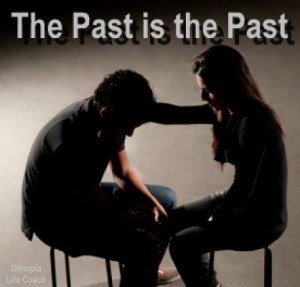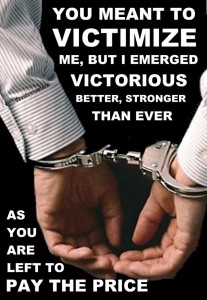Before you start working with an Olympian Life Coach, you might like first to do your own coaching reality check first, to prepare yourself for the work that is ahead. Most coaching clients don’t realize these basic fundamentals prior to going into coaching, so reviewing these realities can be highly beneficial prior to getting ready to do the work.

Life is filled with unexpected twists and turns, making it inherently unpredictable.
Life is an intricate tapestry of unexpected surprises and unpredictable events that can catch us off guard when we least expect it. It’s crucial to take a step back occasionally and reflect on these harsh realities that are an inherent part of our journey.
Mortality is an inevitable reality, yet the timing of our demise remains unknown.
While we all understand the inevitability of our mortality, the exact timing of our departure from this world remains an enigma. We may strive to live healthily and plan for the future, but the truth is that our lives are inherently uncertain, and our time on Earth is limited. Embracing every moment becomes essential, recognizing that our journey could reach its conclusion unexpectedly.
Material wealth does not enhance one’s character or overall happiness.
Many people mistakenly believe that accumulating material wealth will automatically make them better individuals or bring everlasting happiness. However, the truth is that money cannot buy true fulfillment or joy. While financial resources can provide access to various experiences and opportunities, they do not determine our worth as human beings or guarantee genuine happiness. Prioritizing activities that bring us true contentment, such as nurturing relationships, exploring nature, or immersing ourselves in books, proves more beneficial than fixating on acquiring expensive possessions.
The relentless pursuit of happiness often hinders its attainment.
Our relentless pursuit of happiness often becomes a stumbling block in attaining it. We tend to believe that if we work a little harder, land a better job, or find the perfect partner, our lives will be complete, and everlasting contentment will be achieved. However, reality rarely aligns with these expectations. No matter how diligently we strive or what endeavors we undertake, there will always be a degree of dissatisfaction woven into the fabric of our lives. This obsession with an elusive “perfect” life often prevents us from appreciating and finding fulfillment in the present.
Donating time can have a greater impact than donating money.
While donating money is commendable, it can be argued that donating time holds a greater impact for both the giver and the recipient. Giving our time allows for a deeper, more personal connection to form between individuals, fostering understanding and empathy. It enables tangible changes to be witnessed within the person or community receiving aid. In contrast, monetary donations can sometimes feel impersonal, lacking the personal connection or sense of fulfillment experienced through direct involvement.
It is impossible to please everyone, and striving to do so only leads to self-loss.
A harsh reality that often goes unacknowledged is the impossibility of making everyone happy. When we excessively focus on pleasing others, we risk losing our own sense of identity and well-being. It is essential to recognize that not everyone will be pleased by our actions or decisions. Trying to be someone we’re not or constantly striving for approval from others ultimately leads to frustration and unhappiness. Prioritizing our own happiness and accepting that it is impossible to please everyone, no matter how hard we try, becomes crucial for our well-being.
Perfection is an unattainable standard that brings unnecessary suffering.
Society often places great emphasis on achieving perfection in various aspects of our lives. However, the truth is that perfection is an unattainable standard, and holding ourselves to unrealistic expectations only invites suffering into our lives. While striving for excellence can inspire us to do our best, fixating on perfection sets us up for disappointment, frustration, and even depression. Instead, accepting that perfection is an impossible goal allows us to focus on giving our best effort with the resources available to us.
Acknowledging and honoring our emotions is crucial, as they hold more significance than our thoughts.
In the hierarchy of importance, our feelings outweigh our thoughts, and it is imperative to acknowledge the signals conveyed by our emotions rather than dismiss them. Our feelings serve as valuable indicators of our needs and desires in life, offering guidance on the path to personal growth. Though it may be challenging to confront uncomfortable emotions, doing so allows us to gain self-understanding and make more informed choices. Embracing and accepting our feelings provides insight into our needs and the strategies to fulfill them.
Taking accountability for our actions is vital as they define our character.
Actions possess greater significance than mere words, and it is crucial to hold ourselves accountable for the consequences of our actions. The choices we make and the way we treat others define our character and the impact we have on the world. Acknowledging our responsibility and taking ownership of our actions allows us to grow as individuals and cultivate integrity in our interactions with others.
Achievements and success hold little importance at the end of life.
As we journey through life, it becomes evident that achievements and successes lose their luster when faced with the ultimate truth of our mortality. In the final moments, the size of our bank account, the accolades we’ve received, or the material possessions we’ve accumulated become inconsequential. What truly matters is the love we shared, the impact we had on others, and the memories we created. Focusing on these meaningful aspects of life becomes paramount to finding fulfillment.
Talent alone is meaningless without consistent effort and practice.
Talent alone holds little value without consistent effort and practice. While some individuals may possess natural abilities in various areas, honing those talents requires dedication, perseverance, and a commitment to continuous improvement. Natural aptitude may provide a head start, but without sustained effort, it remains underutilized and fails to reach its full potential.
The present moment is all that truly matters, and dwelling on the past or future is wasteful.
The present moment holds more significance than dwelling on the past or anxiously worrying about the future. Often, we find ourselves longing for moments that have passed or anxiously anticipating what lies ahead, disregarding the beauty and opportunities that surround us in the present. By being fully present in each moment, we can savor the joys, learn from the challenges, and make the most of the opportunities that life presents.
Others are not inclined to care deeply about the difficulties we face.
While our personal challenges may feel overwhelming to us, it is essential to acknowledge that others may not have the capacity or inclination to deeply care about our difficulties. People are absorbed in their own lives, battling their own struggles, and managing their own emotions. Understanding this truth allows us to seek solace and support from those who are genuinely available and willing to listen, while also developing self-reliance and resilience.
Our words possess great power and can inspire others even during challenging times.
Words possess immense power, and they can inspire, uplift, and encourage others even in the midst of challenging times. Our words have the potential to bring comfort to someone’s heart, ignite their motivation, or instill hope in their lives. The ability to choose our words wisely and use them to spread positivity becomes a responsibility we should embrace.
Investing in oneself is not selfish but rather a valuable endeavor.
Investing in ourselves is not a selfish act but a necessary one for personal growth and well-being. Prioritizing self-care, learning, and personal development equips us with the tools to navigate life’s challenges and contribute meaningfully to the world around us. By valuing ourselves and our needs, we can cultivate a stronger sense of purpose and fulfillment.
It is our reactions to life’s circumstances that shape our experiences.
Life’s circumstances are beyond our control, but our reactions to them shape our experiences. Difficulties and hardships are an inevitable part of life, and we may not have control over external events, but we can choose how we respond to them. Our mindset, resilience, and ability to adapt play a significant role in determining the outcomes we experience and the growth we attain.
Meaningful relationships are essential for lasting happiness.
Meaningful relationships are essential for lasting happiness. As social beings, we thrive on connection and the bonds we form with others. Genuine connections nourish our souls, provide support during challenging times, and offer joy during moments of celebration. Investing time and energy into nurturing these relationships become a fundamental aspect of leading a fulfilling life.
Pursuing momentary pleasure yields little fulfillment; instead, focus on long-term stability.
Pursuing momentary pleasures or instant gratification often leads to a shallow sense of fulfillment. Seeking temporary highs or constantly chasing after fleeting experiences rarely leads to long-lasting contentment. Instead, focusing on long-term stability, personal growth, and the pursuit of meaningful goals offers a more sustainable path to genuine happiness.
Ambition without action is meaningless; success requires dedication and hard work.
Ambition and dreams without deliberate action hold little value. While having aspirations and setting goals is essential, they remain mere fantasies without the commitment to take consistent action. Success requires dedication, perseverance, and the willingness to push through challenges and setbacks. It is through intentional effort that dreams become reality.
Time is our most precious asset, and it necessitates careful prioritization.
Accepting that life is inherently uncertain and embracing the journey with all its ups and downs allows us to find beauty in the midst of chaos. The unpredictability of life can be both terrifying and liberating. By letting go of the need for complete control, we can experience a sense of freedom and find peace in embracing the unknown. Life’s uncertainties offer opportunities for growth, self-discovery, and the creation of a meaningful existence.



















